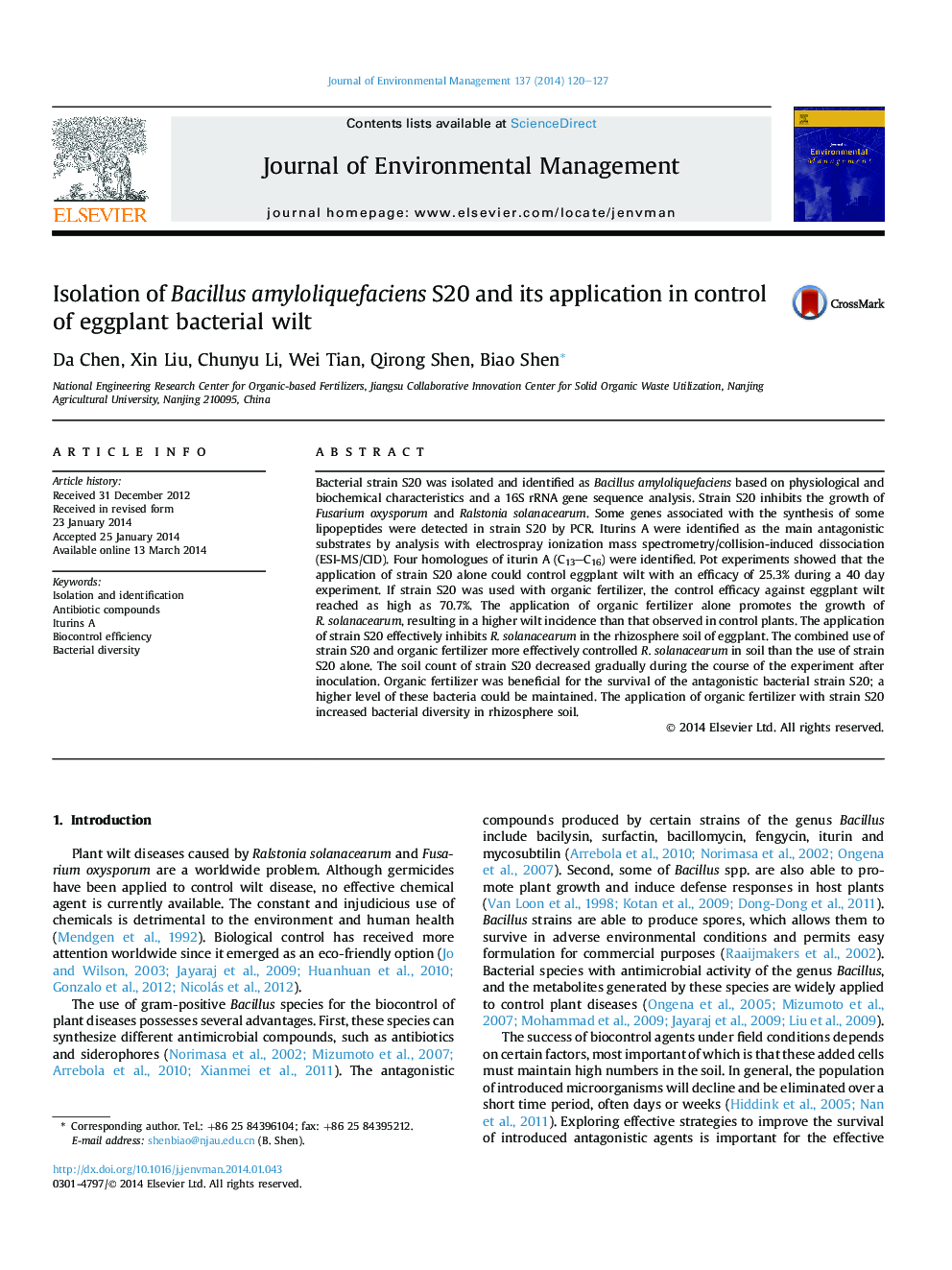| کد مقاله | کد نشریه | سال انتشار | مقاله انگلیسی | نسخه تمام متن |
|---|---|---|---|---|
| 1055734 | 1485275 | 2014 | 8 صفحه PDF | دانلود رایگان |

• Antagonistic strain S20 was isolated and identified as Bacillus amyloliquefaciens.
• Iturins A were main antagonistic substrates produced by strain S20.
• Organic fertilizer was helpful for strain S20 to survive and control plant disease.
• Use of strain S20 and organic fertilizer could increase the bacterial diversities.
Bacterial strain S20 was isolated and identified as Bacillus amyloliquefaciens based on physiological and biochemical characteristics and a 16S rRNA gene sequence analysis. Strain S20 inhibits the growth of Fusarium oxysporum and Ralstonia solanacearum. Some genes associated with the synthesis of some lipopeptides were detected in strain S20 by PCR. Iturins A were identified as the main antagonistic substrates by analysis with electrospray ionization mass spectrometry/collision-induced dissociation (ESI-MS/CID). Four homologues of iturin A (C13–C16) were identified. Pot experiments showed that the application of strain S20 alone could control eggplant wilt with an efficacy of 25.3% during a 40 day experiment. If strain S20 was used with organic fertilizer, the control efficacy against eggplant wilt reached as high as 70.7%. The application of organic fertilizer alone promotes the growth of R. solanacearum, resulting in a higher wilt incidence than that observed in control plants. The application of strain S20 effectively inhibits R. solanacearum in the rhizosphere soil of eggplant. The combined use of strain S20 and organic fertilizer more effectively controlled R. solanacearum in soil than the use of strain S20 alone. The soil count of strain S20 decreased gradually during the course of the experiment after inoculation. Organic fertilizer was beneficial for the survival of the antagonistic bacterial strain S20; a higher level of these bacteria could be maintained. The application of organic fertilizer with strain S20 increased bacterial diversity in rhizosphere soil.
Journal: Journal of Environmental Management - Volume 137, 1 May 2014, Pages 120–127